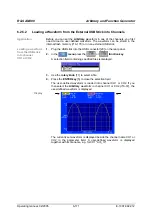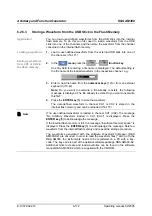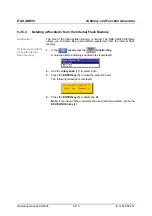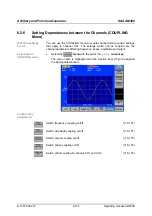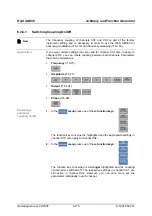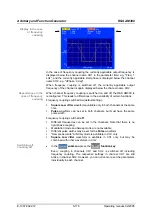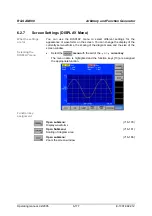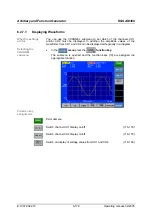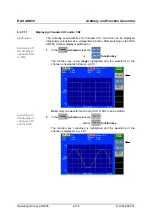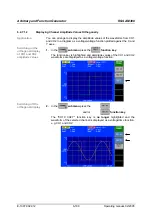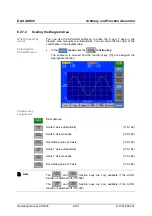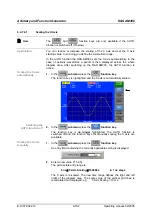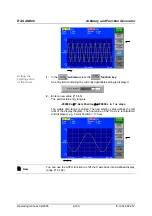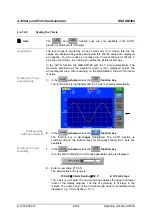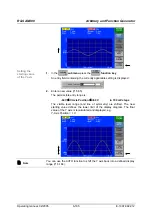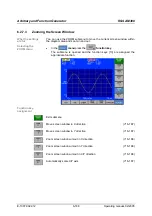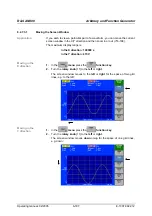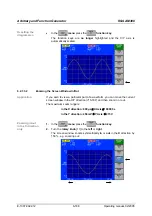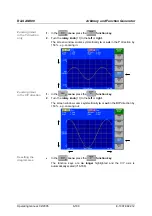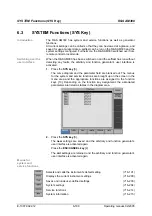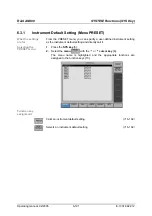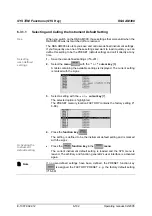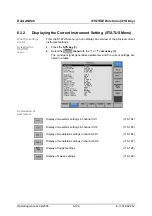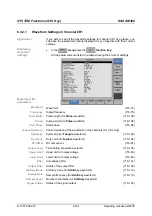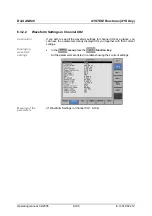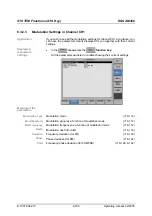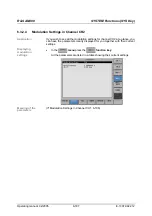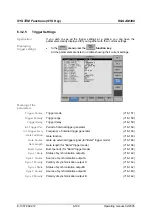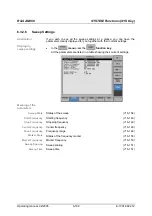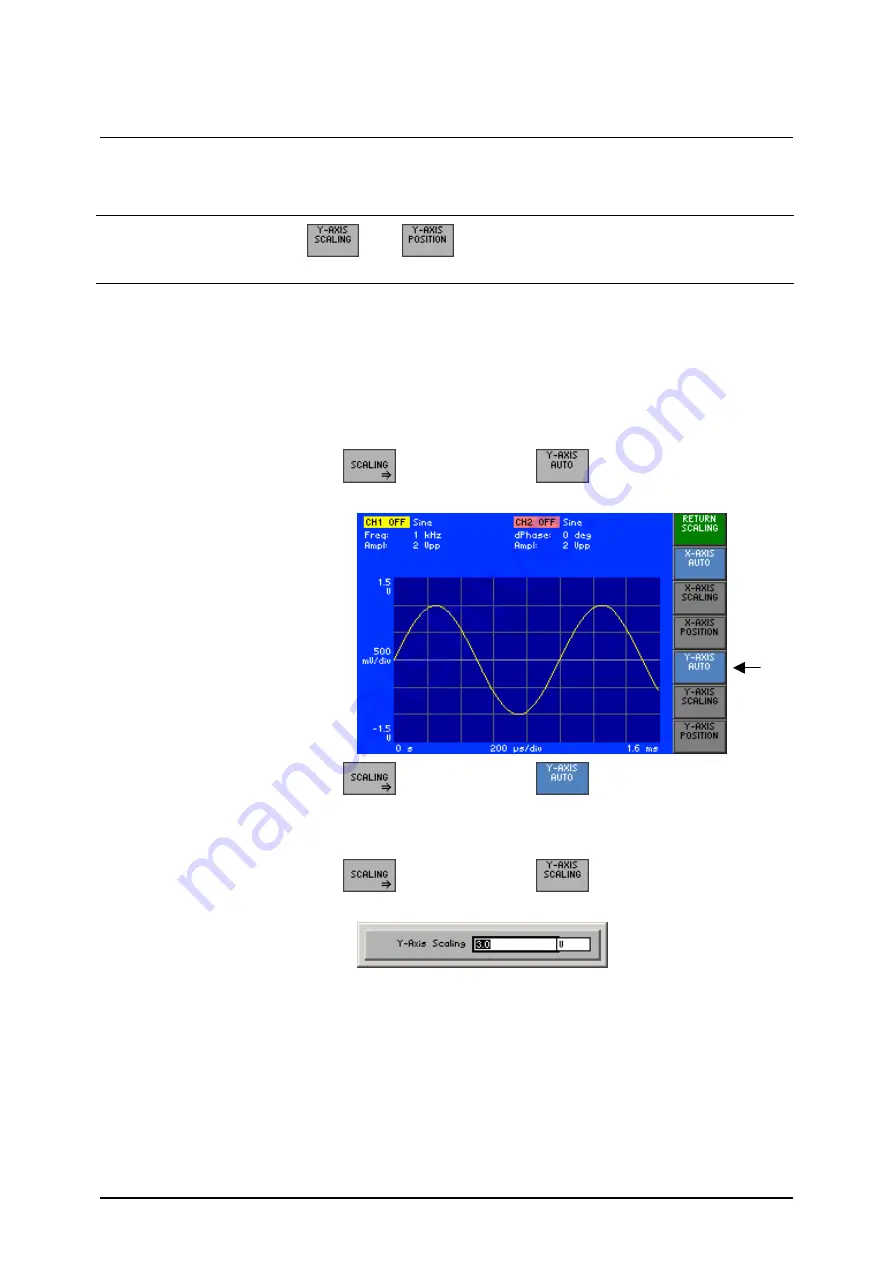
Arbitrary and Function Generator
R&S AM300
E-1007.9922.12
6-184
Operating manual, 02/2005
6.2.7.2.2
Scaling the Y Axis
Note
The
and
function keys are only available if the AUTO
function is switched off ( below).
Application
The level range is divided by a line of symmetry (0 V). Above this line the
values are displayed as positive and below this line the values are displayed
as negative. You can reduce or increase the Y axis scaling and shift the Y
axis line of symmetry. In so doing you define the visible level range.
In the AUTO function the R&S AM300 sets the Y axis automatically. The
maximum amplitude of the waveform (Upp) is then displayed across the
whole diagram area. After switching on the R&S AM300, the AUTO function
is active.
Scaling the Y axis
automatically
1.
In the
submenu
press the
function key
.
The function key is highlighted and the Y axis is scaled automatically.
Switching the
AUTO function off
2.
In the
submenu
press the
function key
.
The function key is
no longer
highlighted. The AUTO function is
switched off and the function keys for manually scaling the Y axis are
available.
Scaling the Y axis
manually
1.
In the
submenu
press the
function key
.
An entry field containing the currently applicable setting is displayed .
2.
Enter a new value ( 5-55).
The permissible entry range is:
100 mV
≤
Y-Axis Scaling
≤
30 V
in 100 mV steps
The Y axis is re-scaled. The new level range defines the upper and lower
limits of the display diagram. The line of symmetry (0 V) stays in the
middle. The scale value of the horizontal grid lines is recalculated and
displayed, e.g.
Y-Axis Scaling = 10 V:
Summary of Contents for AM 300
Page 2: ...02 2005 ...


